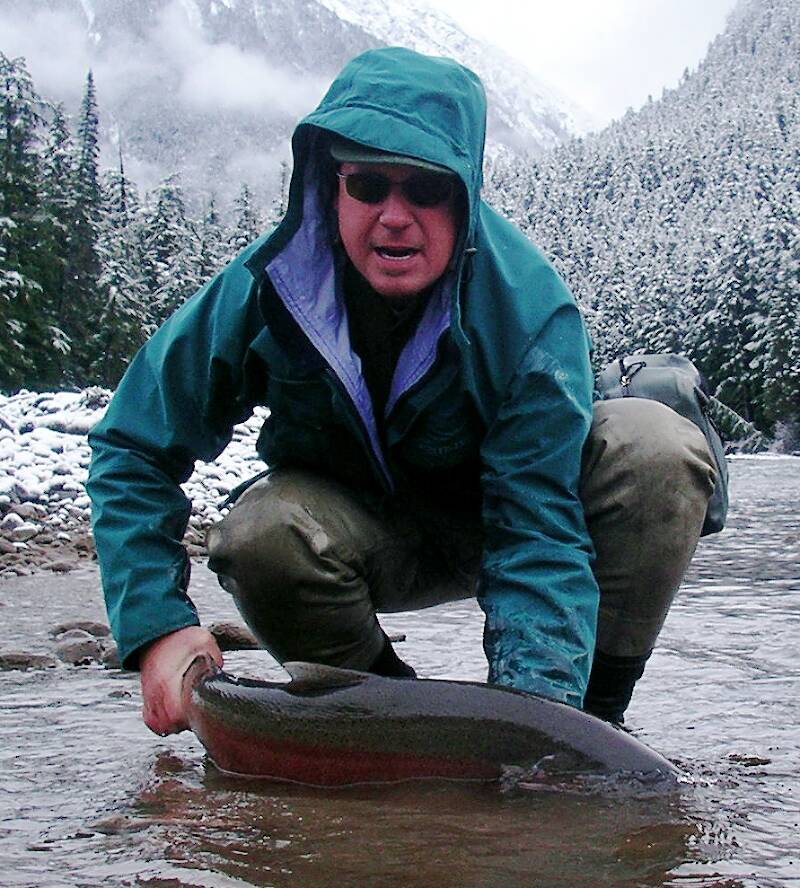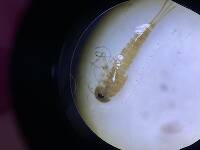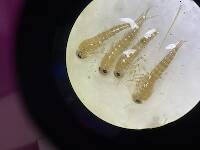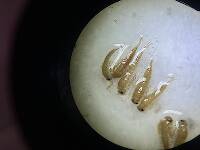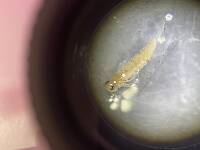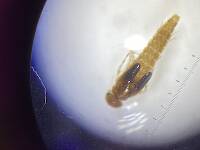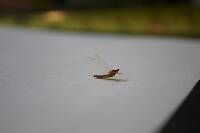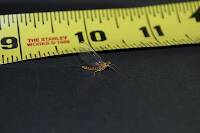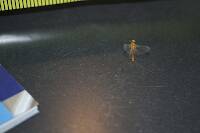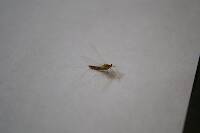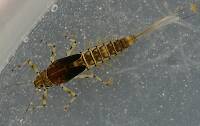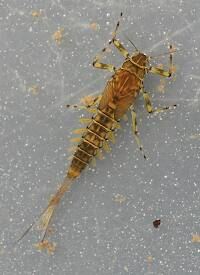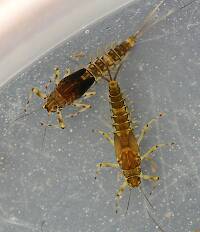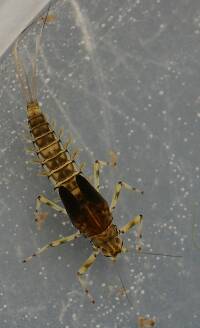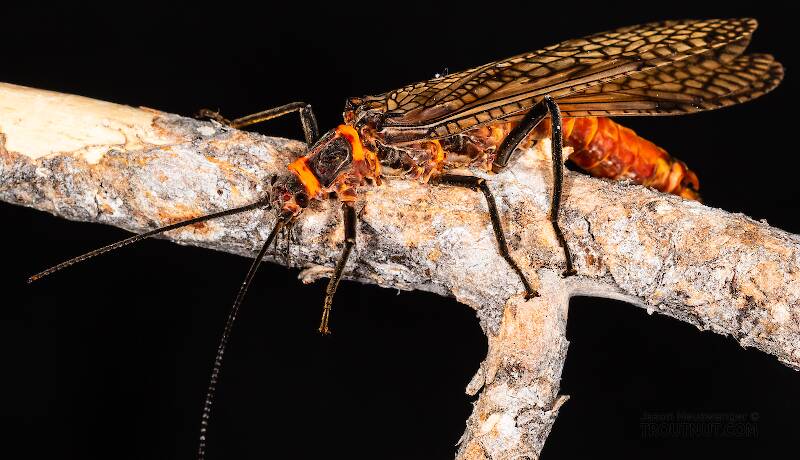
Salmonflies
Pteronarcys californica
The giant Salmonflies of the Western mountains are legendary for their proclivity to elicit consistent dry-fly action and ferocious strikes.
Featured on the forum
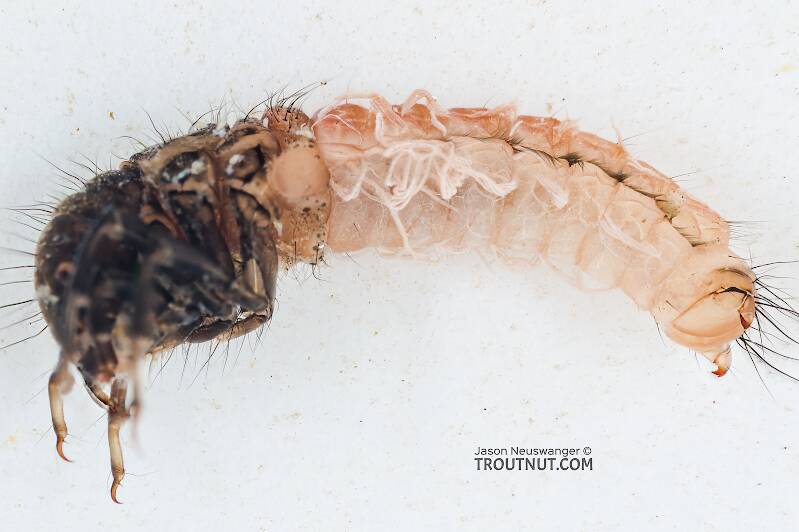
This specimen keys pretty easily to Onocosmoecus, and it closely resembles a specimen from Alaska which caddis expert Dave Ruiter recognized as this genus. As with that specimen, the only species in the genus documented in this area is Onocosmoecus unicolor, but Dave suggested for that specimen that there might be multiple not-yet-distinguished species under the unicolor umbrella and it would be best to stick with the genus-level ID. I'm doing the same for this one.

Troutnut is a project started in 2003 by salmonid ecologist Jason "Troutnut" Neuswanger to help anglers and
fly tyers unabashedly embrace the entomological side of the sport. Learn more about Troutnut or
support the project for an enhanced experience here.
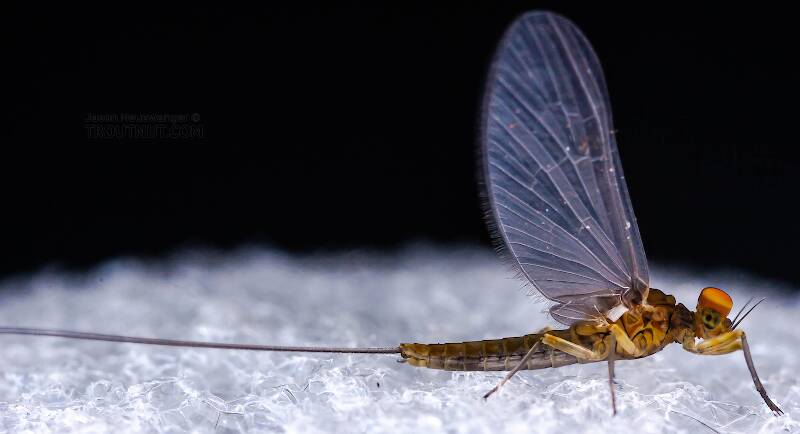
This dun molted most of the way into a spinner (though the wings got stuck) the evening after I photographed it, so I took some more photos of the spinner.
I found a female nearby, probably of the same species.
I found a female nearby, probably of the same species.
Entoman on Oct 25, 2011October 25th, 2011, 11:39 am EDT
Hi Jason,
Excepting Bob Newell's nymphs, I believe the photos on the Acerpenna genus hatch page are actually Baetis. Looking closely at the images shows characters hard to reconcile with Merritt IV couplet 37(36') for Acerpenna that reads in part as follows, "...beyond costal process anterior margin of hind wing undulate; terminal segment of male forceps approximately four times as long as wide..."
The specimens do match up with Baetis by the process of elimination as the preceding couplets and those that follow rule out other possibilities by negative determination. The characters of baetis are so variable that the keys have to be structured this way, I guess.
Regards,
Kurt
Excepting Bob Newell's nymphs, I believe the photos on the Acerpenna genus hatch page are actually Baetis. Looking closely at the images shows characters hard to reconcile with Merritt IV couplet 37(36') for Acerpenna that reads in part as follows, "...beyond costal process anterior margin of hind wing undulate; terminal segment of male forceps approximately four times as long as wide..."
The specimens do match up with Baetis by the process of elimination as the preceding couplets and those that follow rule out other possibilities by negative determination. The characters of baetis are so variable that the keys have to be structured this way, I guess.
Regards,
Kurt
"It's not that I find fishing so important, it's just that I find all other endeavors of Man equally unimportant... And not nearly as much fun!" Robert Traver, Anatomy of a Fisherman
Quick Reply
Related Discussions
Topic
Replies
Last Reply


